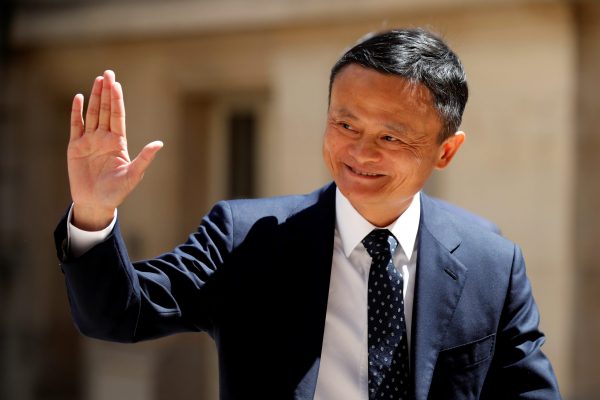Counting nuclear arsenals and submarines and measuring GDP and economic growth have been supplemented to some degree by measuring the attractiveness of a country, its culture, values and policies. China’s soft power can take a myriad of shapes and forms. Its instruments include Confucius Institutes, globalised media flagships (including Xinhua and the China Global Television Network), sports, film, educational and cultural industries — all traditionally state-controlled agencies and enterprises.
Increasingly, we have witnessed the accelerating possibilities offered by China’s private sector, particularly its digital and high-tech companies. These have, to some degree, relaxed the limits of Beijing’s efforts to ‘let the world know and understand China from a Chinese perspective’ and build a positive image of China.
Narratives about China’s rise and the ‘China dream’ should now also be understood in terms of the role China’s private sector plays to expand Chinese presence and influence in the Asia Pacific and globally. Through such private diplomacy efforts, China’s digital enterprises have built up massive markets in social media and social commerce.
This diplomacy has been led by Baidu, Alibaba and Tencent, joined by many digital unicorns and high-tech start-ups, including ByteDance (known for Toutiao and TikTok), iQiyi, Meituan, Didi Chuxing and Pinduoduo. These companies help to spread Chinese influence overseas, mostly to countries with large Chinese diasporas. As they become more entangled with global venture capital and stock markets as well as politically and culturally ‘odourless’, they add a ‘social’ dimension and approach to Chinese soft power.
China is not only the world’s largest internet and mobile phone market — with more than 800 million internet users, 98 per cent of whom are mobile — but also the biggest social media and social commerce market. Its social media landscape is incredibly diverse, rich and vibrant. It is also unique in having no space for Facebook, Instagram, YouTube and Twitter, which are all blocked.
Most people have heard of the two pillars of Chinese social media, WeChat and Weibo. WeChat, a social messaging platform, has over one billion monthly active users. Weibo, a micro-blogging platform, has 600 million registered users. Most people have also heard of the two heavyweights in Chinese e-commerce, Alibaba and JD.com. But there are hundreds of competitive Chinese players and apps in instant messaging, social e-commerce, news, entertainment, video and photo sharing, live streaming, gaming and lifestyle networking.
One feature of Chinese social media platforms is that they are all racing to be the all-in-one super-app. On most Chinese social media apps, people can chat, post, shop, transfer cash, hail a ride, book trains, flights and hotels or donate to charity. Approximately 90 per cent of digital financial transactions are made through the two major digital payment platforms that are spearheading the emergence of a cashless society: AliPay and WeChat Pay.
Chinese social media platforms are also pioneering a new type of business model. This model is known as ‘social plus’ (social+). It combines social networking and entertainment in the context of e-commerce transactions. Apart from the WeChat, Weibo and NetEase heavyweights, rising stars like Pinduoduo and Xiaohongshu have enjoyed increasing consumer popularity.
Chinese social media companies are crucial in China’s internationalisation and soft-power initiatives. They follow Chinese travellers and migrants, form local partnerships, and make strategic investments in local R&D facilities and tech startups to expand the Chinese digital ecosystem globally, often in competition (but also in collaboration) with established and emerging international and local players.
China’s technological capitalists — the CEOs, senior managers, scientists and engineers of the new technology sector — are the face of the newfound power of the digital economy. The mobile, wealthy, networked and English-speaking Chinese middle and upper classes are the representatives of the new digital China. These corporate players, social media users and social commerce ‘prosumers’ help to spread the Chinese digital sphere of influence across the Asia Pacific region where there is a large Chinese population, and increasingly along BRI routes.
An openness to and an enthusiasm for technological development, digital lifestyles and the social+ business model is largely responsible for China’s present-day reputation as innovative. The private sector, represented by digital and high-tech companies, has been making more effective inroads into unknown and difficult terrain than the traditional tools of China’s soft power. China’s private and digital sectors are in effect supporting a social+ approach to soft power.
A social+ approach to soft power is not without obstacles, however. China’s infamous censorship regime and its record in co-opting the private sector have led to concerns, especially in the West, about freedom of speech and possible security risks. This underpins contemporary debate over the ‘authoritarian threat’ or ‘digital authoritarianism’ that digital China could present.
Chinese social and digital platform capitalists have quietly drummed up business sales and market shares outside China. They represent both the opportunities and challenges of China’s social+ approach to soft power in the digital era. How to present a benign image of Chinese digital civilisation in the face of the malign mirror-image of Chinese sharp power is a challenge for these digital capitalists. How to balance economic imperatives with the political demands of both national and local powers in domestic and international markets are further challenges — ones which are unavoidable for any serious player in the global digital economy.
Haiqing Yu is an Associate Professor and Vice-Chancellor’s Principal Research Fellow in the School of Media and Communication at the Royal Melbourne Institute of Technology (RMIT).
This article appeared in the most recent edition of East Asia Forum Quarterly — Chinese realities — Vol. 11, No. 2.

